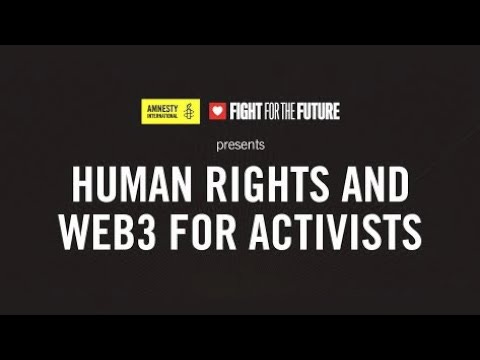✖️ What's a better internet?
And: Moving beyond patronage; Eco-vinyl and our listening habits; Breaking down Deezer's recent growth; AI creating a new colonial world order; Venues need to stop ripping artists off on merch sales
There’s a lot of excitement around Web3, the next iteration of the internet. Simply put, the Web3 promises to bring about new modes of governance and reshape the way we think about and organise ownership. On the flip side, the blockchain technology that a lot of the Web3 is built upon has a lot of unruly attributes and plenty of bad actors. And yet, even some of the staunchest criticasters of blockchain tech also talk about the valuable questions that fly around Web3 discussions. These focus on improving the way we govern communities and the way we organise our society through ownership. These questions go much broader than music, but find their own examples within the experiments we’re seeing that are driven by artists or platforms. What all these experiments offer is a way to think about what the Web3 can be and thus what benefits it can offer to those active within it.
For musicians, the Web3 offers a better internet that doesn’t just extract the value from their art, but in which they can find their nuclear communities to both support what they do and grow their art through and with. I was recently part of a great panel that aimed to present the kind of futures that we can unite around and which happen to be driven through the Web3. We went through the following four futures:
The first issue discussed was that of data sovereignty. Emily Jacobi, of Digital Democracy spoke about how they work to build tools for, for example, indigenous communities to help them defend their human and environmental rights. A lot of these tools work on decentralized databases that helps to provide data sovereignty and thus keep data within local communities.
The second issue focussed on the fine line between the benefit of moving out of the extractive platform economy and into a financialized creator-fan relationship. The moment you start to add liquidity to that kind of relationship the creator becomes a stock, and the fan becomes an investor. Charley Johnson, of Untangled, thoughtfully spoke about what the dangers of that kind of relationship can be. My key take-away was that everyone should ask themselves if they would want to have their ‘popularity’ be determined by the price of their token.
I then spoke about how the kind of reconsideration of value that exists in Web3 can benefit musicians, and creators more generally. This ranges from finding cult fans and flipping the funnel on how you find and build your community to thinking through governance structures and what kind of tokenization you would want to attach to yourself, your music, and your fans.
The final panelist was Clara Tsao, of the Filecoin Foundation, who spoke about some of the current and impending challenges of the decentralized internet. She highlighted three important elements in terms of storage:
Where information comes from;
How it can be preserved; and
What moderation tools are needed.
You can watch the whole panel here. I highly recommend it for people who have a broader interest in what the Web3 will bring us, both in terms of its potential and its challenges.
LINKS
🪙 Moving the Creator Economy Beyond Patronage (Decent.xyz)
This is something I’ve been personally thinking through in recent weeks: what happens if we bring DeFi elements like staking to music. Lo and behold, others are implementing it. Very curious to see what this experiment from Decent will bring to both the creator and to the buyers.
🧋 Addicted To Plastic? Eco-Vinyl And The Impact Of Our Listening Habits (The Quietus)
“If we want to avert the climate crisis and leave a carcinogen free world for future generations, the question is whether we abandon vinyl entirely (heartbreaking and unconscionable for many) or make it clean and sustainable. Thankfully, there are a growing number of people who are attempting to do just that.”
🛑 The Ides Of Merch: Why Venues Need To Stop Ripping Off Musicians (Sean Adams)
“There’s a lot of jargon and complexity in the live music industry and boy oh boy is there a lot of “non-negotiable” small print. Dive into that and sometimes you’ll discover an accumulation of items promoters will add to the costings of a show. This kind of practice is rare at 200-700 capacity venues, but as you step up from Hebden Bridge Trades Club and Exeter Cavern into big brand sponsored academies, iconic institutions, and theatres, you notice the ker-changes.”
🧫 Deezer’s SPAC announcement breaks down its recent growth (Stuart Dredge)
“More context for Deezer’s scale comes in its breakdown of its revenues geographically: 60.7% of them came from France in 2021, up from 54.8% in 2019 and 59.5% in 2020. Contrary to what you might expect, the company’s business has been getting more dependent on its homeland in recent years rather than less – although it did note €28.1m of 2021 revenues from Brazil, a market where Deezer estimates it has a 20% market share of subscribers.”
🤔 KOKO partners with crypto company Luno for DJ shows and immersive events at refurbished venue (Charlotte Krol)
I’m not quite sure what to make off this, but it could be interesting to see how this partnership will match the digital experiences with the analogue ones.
🤖 Artificial intelligence is creating a new colonial world order (Karen Hao)
Rounding things off with an article that resonates with the panel topics mentioned above. How can we make sure that new technologies don’t simply rebuild existing power structures? This will be a series by Karen Hao, and I highly recommend reading along.
MUSIC
The Museum of Endangered Sounds
Something a little different. Have some fun with these old-school sounds that you may or may not remember and see if you can make music by combining them.



